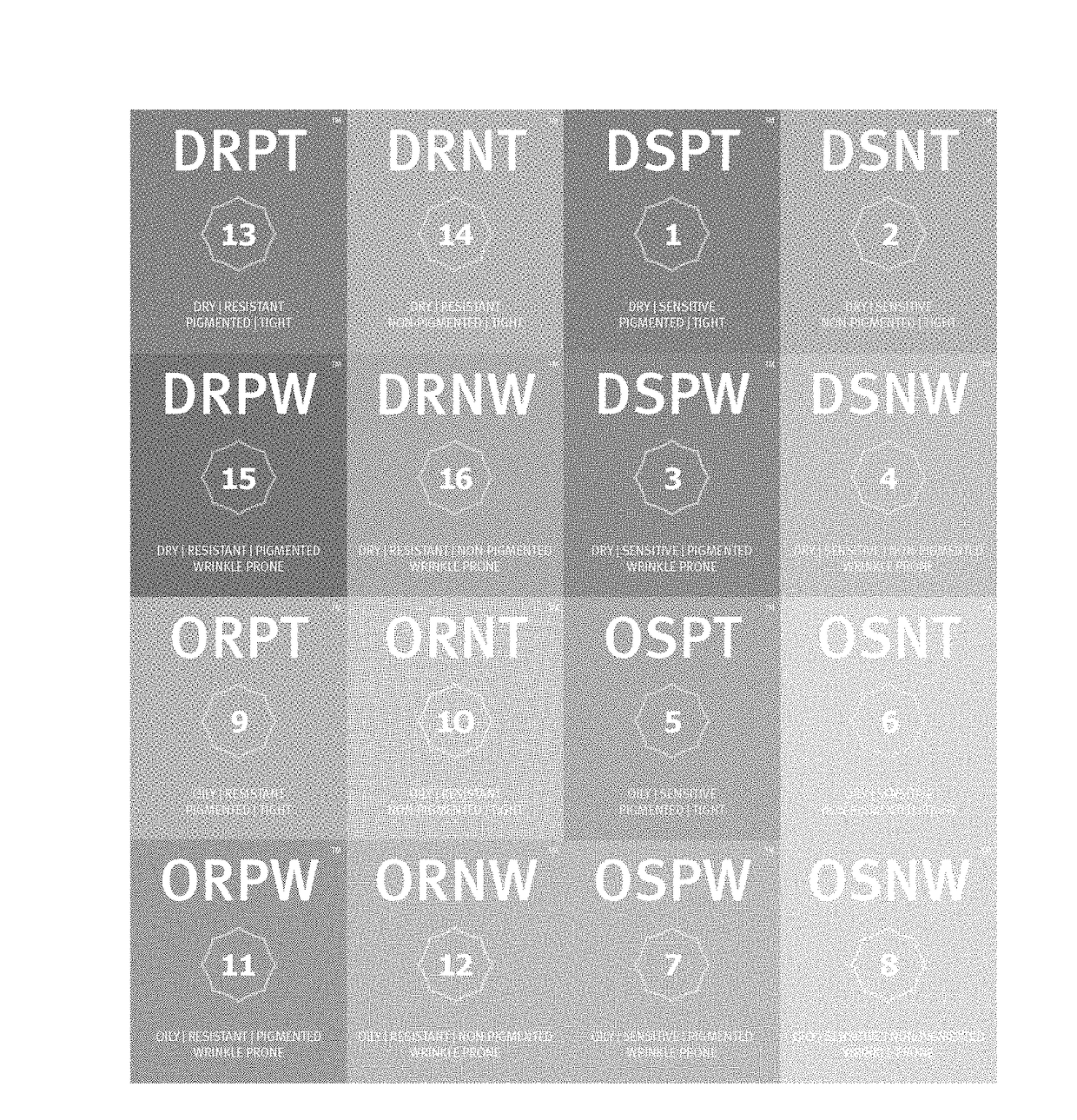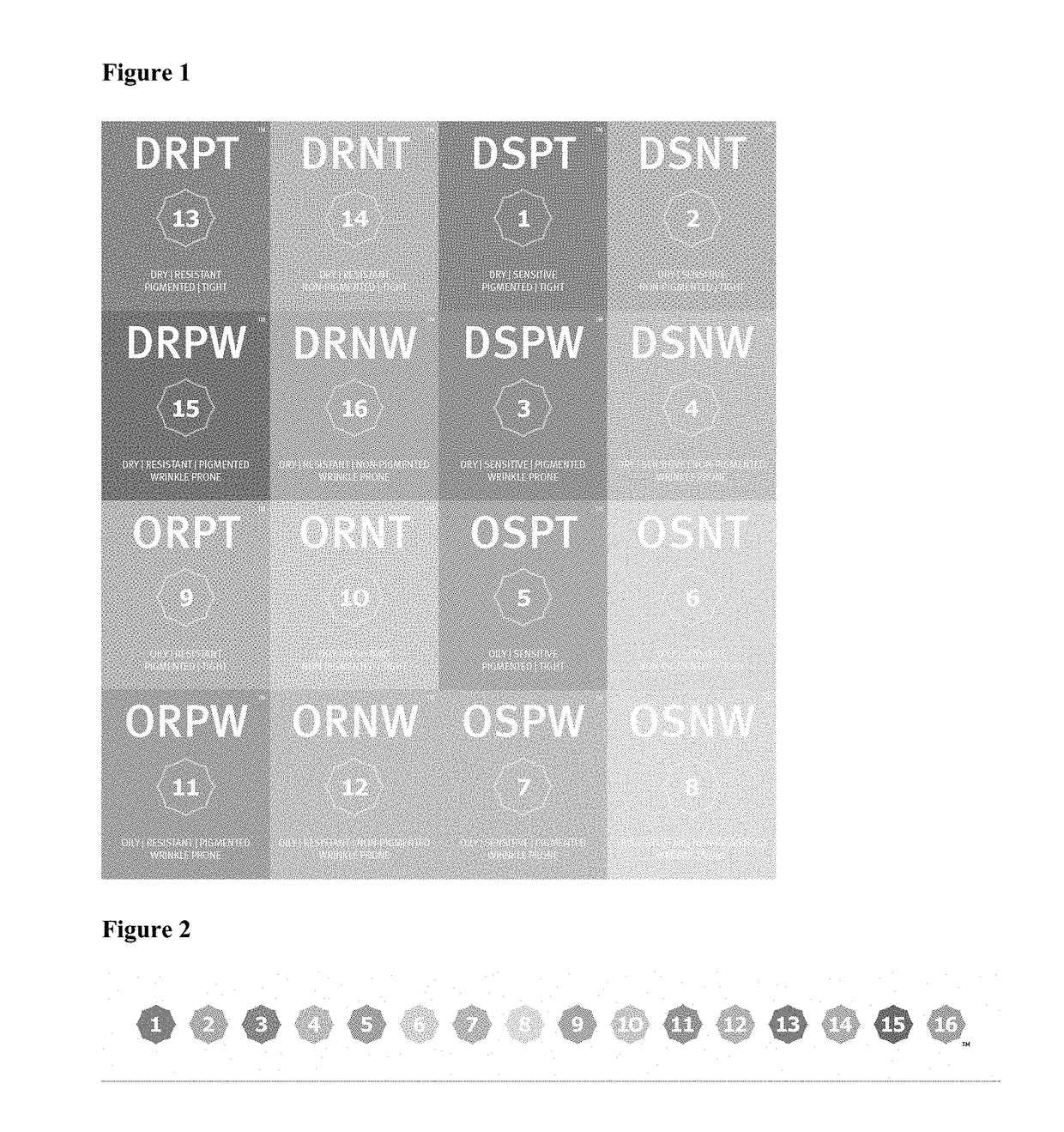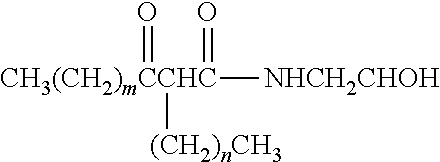Optimized skincare regimens for changing the genetic skin type to the ideal skin type—oily, resistant, non-pigmented and tight skin
a skin type and genetic technology, applied in the field of skin care regimens, can solve the problems of ineffective skin treatment, worsening of the condition being treated, dry skin being more vulnerable and reactive, etc., and achieve the effect of improving the skin, improving the skin, and improving the skin of a person
- Summary
- Abstract
- Description
- Claims
- Application Information
AI Technical Summary
Benefits of technology
Problems solved by technology
Method used
Image
Examples
Embodiment Construction
[0019]There are sixteen human skin types, expressed in terms of four pairs of clinical characteristics, wherein: (a) the first pair is selected from the group of oily (“O”) or dry (“D”); (b) the second pair is selected from the group of oily sensitive (“S”) or resistant (“R”); (c) the third pair is selected from the group of pigmented (“P”) or non-pigmented (“N”); and (d) the fourth pair is selected from the group of wrinkle-prone (“W”) or tight (“T”).
[0020]Each of these clinical characteristics is defined below based on one or both of an instrumental measurement and / or clinically validated questionnaire.
[0021]While the skilled artisan will appreciate that the same individual can have different skin types at different points in time—e.g., oily during the summer, but dry during the winter; or pigmented (uneven toned) in the summer, but non-pigmented (even toned) in the winter.
[0022]Eight (8) human skin types relate to “oily” skin: oily, sensitive, pigmented, tight (“OSPT”); oily, sen...
PUM
| Property | Measurement | Unit |
|---|---|---|
| degrees of oiliness | aaaaa | aaaaa |
| colors | aaaaa | aaaaa |
| oiliness | aaaaa | aaaaa |
Abstract
Description
Claims
Application Information
 Login to View More
Login to View More - R&D
- Intellectual Property
- Life Sciences
- Materials
- Tech Scout
- Unparalleled Data Quality
- Higher Quality Content
- 60% Fewer Hallucinations
Browse by: Latest US Patents, China's latest patents, Technical Efficacy Thesaurus, Application Domain, Technology Topic, Popular Technical Reports.
© 2025 PatSnap. All rights reserved.Legal|Privacy policy|Modern Slavery Act Transparency Statement|Sitemap|About US| Contact US: help@patsnap.com



